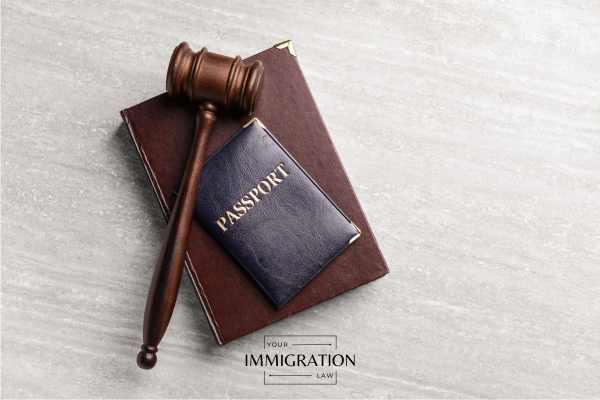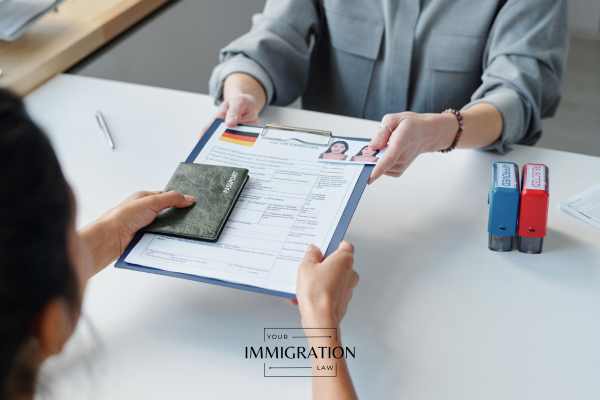A U visa petition offers protection to victims of certain kinds of crimes who have suffered mental or physical abuse and are willing to assist law enforcement in investigating or prosecuting the crime. This type of visa not only provides a path to legal status in the U.S. but can also extend to qualifying family members. Navigating the U visa process can be complicated, and having a skilled U Visa attorney by your side ensures that your rights are protected and that you follow the proper steps.
If you or a loved one has been a victim of a crime and may qualify for a U visa, contact an immigration lawyer today. Our firm can guide you through the application process and help you secure the protection and opportunities the U visa offers. Call us at 313-631-8080 to take the first step toward rebuilding your life with the legal support you deserve.
Eligibility requirements for U Visa applicants
In order to qualify for a U Visa applicants must meet several specific eligibility requirements. These criteria are designed to ensure that applicants genuinely need protection and have assisted or are willing to assist the legal authority in the investigation or prosecution of criminal activity.
Victims That Can Qualify for This Visa
To be eligible for a U Visa, you must be a victim of one of the qualifying violent crimes or sex crimes listed under U.S. law. These crimes include, but are not limited to:
- Domestic violence
- Sexual assault
- Human trafficking
- Kidnapping
- Felonious assault
- Blackmail
- Extortion
- Murder or manslaughter
- Witness tampering

These types of crimes must have violated U.S. laws or occurred within the United States.
You Suffered Substantial Physical or Mental Abuse
You must demonstrate that you have suffered substantial physical or emotional abuse as a result of being a victim of the qualifying crime. This can include physical injuries, emotional trauma, and other forms of harm. The abuse must be significant, although there is no specific threshold for what constitutes "substantial" abuse—it will depend on the individual circumstances.
Helpfulness to Law Enforcement
To be eligible for a U Visa, you must be willing to cooperate with government officials in the investigation or prosecution of the crime. This means providing information, testimony, or assistance as the direct victim that helps the authorities solve the case. A certification from a law enforcement agency, prosecutor, or judge confirming your helpfulness is required to support your application as the principal petitioner.
The Crime Occurred in the U.S. or Violated U.S. Laws
The crime must have occurred in the United States or violated U.S. laws. This includes crimes that happened within U.S. territories or violations of U.S. immigration laws that affect individuals within the country. Crimes that occurred outside of the United States do not qualify for U Visa protection, even if the victim is currently residing in the U.S.
Admissibility to the United States
U Visa applicants must be admissible to the United States under U.S. immigration laws. This means that you cannot have certain criminal convictions, immigration violations, or other factors that would make you ineligible for entry into the country. However, U Visa applicants can apply for a waiver of inadmissibility in some cases, allowing individuals who would otherwise be barred from entering the U.S. to still be eligible for the visa.
Non-Immigrant Intent
The U Visa is a non-immigrant visa, meaning that applicants must not have the intent to permanently immigrate to the U.S. at the time of application. However, after holding a U Visa for a period of time (typically three years), applicants may become eligible to apply for permanent residency (a Green Card).
Meeting the eligibility requirements is crucial for securing this form of relief, and working with an experienced immigration attorney can help ensure that your application is properly prepared and supported.
The U Visa Application Process
Applying for a U Visa involves several steps and requires careful preparation to ensure that your application is successful. It is important to have a skilled temporary visa attorney at your side every step of the way to ensure proper filing of your U visa application. Here’s an overview of the U Visa application process:
Determine Eligibility
Before starting your application, verify that you meet all eligibility requirements for the U Visa. You must be a victim of a qualifying crime, have suffered substantial abuse, and be willing to assist law enforcement in the investigation or prosecution of the crime. Ensure you have the necessary documentation, including evidence of the crime, proof of your cooperation, and any required certifications.
Obtain Law Enforcement Certification
One of the key components of the U Visa application is the Law Enforcement Certification (Form I-918, Supplement B). This form must be completed and signed by a law enforcement officer, prosecutor, or judge who can confirm your involvement and cooperation in the investigation or prosecution of the crime. This certification is critical for demonstrating your eligibility for the U Visa.
Submit Documentation
Fill out Form I-918, Application for U Nonimmigrant Status. This form requires detailed information about yourself, the crime you were a victim of, your assistance to law enforcement, and your background. Be thorough and accurate when completing this form to avoid delays or denials.
Along with Form I-918, you must submit various supporting documents, including:
- Evidence of the crime (e.g., police reports, medical records)
- Proof of substantial abuse (e.g., medical records, psychological evaluations)
- Evidence of your cooperation with law enforcement (e.g., the completed Law Enforcement Certification)
- Personal identification documents (e.g., passport, birth certificate)
Ensure all documents are complete and translated into English if necessary.
Submit your completed Form I-918 and supporting documents to the U.S. Citizenship and Immigration Services (USCIS). You can file your application by mail or, in some cases, electronically. Pay the required filing fee or request a fee waiver if you qualify.
Await a Decision
USCIS will review your application and conduct a thorough examination of the evidence. On average, it takes around 12 to 18 months for USCIS to process a U Visa application. However, processing times can extend beyond this range. During this period, you may be required to provide additional information or attend interviews if requested.

If your application is approved, you will receive a U Visa, which grants you temporary legal status and work authorization in the U.S. If USCIS requires more information or documentation to process your application, you will receive a Request for Evidence (RFE). Respond to any RFEs promptly to avoid delays.
Common Challenges in U Visa Cases
Navigating the U Visa application process can be complex and challenging. Here are some common obstacles applicants may face:
- Securing Law Enforcement Certification: Obtaining the Law Enforcement Certification can be difficult. It requires cooperation from law enforcement officials who must confirm your involvement and assistance in the investigation or prosecution of the crime.
- Proving Substantial Abuse: Demonstrating that you have suffered substantial physical or mental abuse is another hurdle. This may involve providing detailed medical or psychological evaluations, which can be challenging if you have limited access to these services or if your trauma is not well-documented.
- Meeting Admissibility Requirements: Applicants must meet U.S. admissibility requirements, which means any criminal history, immigration violations, or other factors that could render you inadmissible can impact your eligibility.
- Responding to Requests for Evidence: USCIS may issue a Request for Evidence if additional information or documentation is needed. Responding to an RFE requires timely and accurate submission of the requested materials. Failure to respond appropriately can lead to denial of your application.
If you encounter difficulties, working with an experienced immigration attorney can provide crucial assistance and increase your chances of a successful outcome.
Can family members be included in a U Visa application?
Certain family members can be included in a U Visa application. The U Visa allows principal applicants to petition for derivative status for qualifying family members. To include family members in your visa application, you must file Form I-918, Supplement A, Petition for Qualifying Family Member of a U-1 Recipient. This form is used to request derivative U Visa status for your family members.
You’ll need to provide documentation proving your relationship to the family members you are including. This may include:
- Marriage certificates (for spouses)
- Birth certificates (for children)
- Adoption decrees or legal documents (for adopted or stepchildren)
- Proof of relationship (for parents, if you are under 21)
Additionally, each family member must meet eligibility requirements, including being admissible to the U.S. and not having a criminal history that would disqualify them. Including family members can complicate the application process slightly, as it requires additional documentation and may affect processing times.
Find Protection and Legal Support with a Knowledgeable U Visa Lawyer
Obtaining a U visa is an important opportunity for victims of crime seeking safety and legal status in the U.S. A knowledgeable U visa law firm can help you understand the process, avoid common pitfalls, and achieve the best possible outcome.
Ready to take the next step? Reach out to Your Law Immigration today to get a free consultation and start your journey toward securing your future. Act now to ensure you have the support you need every step of the way.